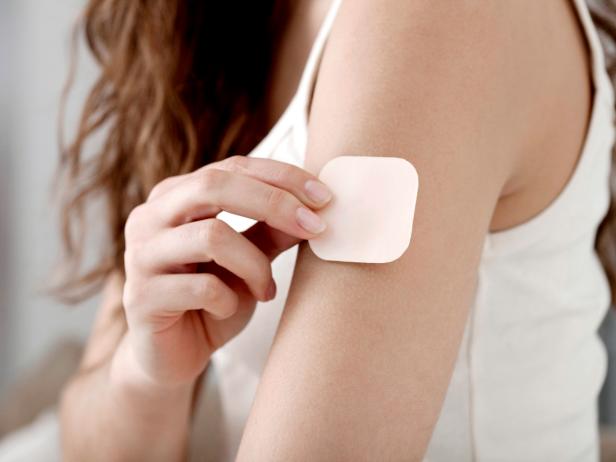What’s the Deal with Vitamin Patches?
Known as "transdermal patches," these supplements are administered through a patch on your skin rather than orally. But do they work?

BSIP/Getty Images
Administering substances through the skin is not revolutionary. (Nicotine patches used to help people quit smoking are probably some of the most common.) Medicinal patches allow for slower administration of certain medications without swallowing pills or liquids. Today, you can find vitamin patches everywhere! From online vendors to drug stores. Cute packaging and flashy designs (some are even customizable) promise to cure hangovers, ward off mosquitos, calm nerves, promote sleep and even enhance athletic performance. Many offer a cocktail of various B vitamins, vitamins D and C, zinc, herbs like echinacea and ashwagandha, and even and stimulants like caffeine — all in a wide range of reported dosages.
Many patches on the market have an adhesive backing and can be placed directly on clean skin. Theoretically, this would allow the nutrients embedded in the patch to transfer through your skin and into the blood stream. Some medicinal patches use a more sophisticated technology with tiny microneedles, which does impact their effectiveness.
Before tossing your entire vitamin cabinet, here’s what a nutritionist wants you to know about these new supplement patches.
Some Patches Work — but It’s Not Perfect
There is shockingly little research on transdermal patches administering micronutrients.
According to a study published in 2019, a small number of gastric bypass patients were given supplemental vitamins in pills or patches. Subjects in the patch group exhibited significantly lower values of vitamins D, B1 and B12 than those taking pills.
Another study concluded that 8 weeks of vitamin D patch usage did improve vitamin D status and was safe, only potentially causing minor skin irritation. Researchers of this also noted that larger scale studies are needed.
According to a review, some micronutrients can’t be administrated via transdermal patch. Researchers also concluded patches can offer advantages including convenience and reduced risk of stomach upset. They also point out disadvantages, including skin irritations, increased cost and barriers to effectiveness from skin oil or hair.
There Are Some Risks Using Vitamin Patches
While the application of a patch is relatively simple, the National Capital Poison Control warns there are still risks of overdose or improper administration . Many companies encourage consumers to mix and match products and make no mention of potential side effects or possible medication interactions. These patches also lack proper FDA approval or testing to ensure safety or efficacy.
Bottom Line: Delivery of nutrients via skin patches may be trendy, but a lot more research is needed before you can assume they are safe or effective.
Dana Angelo White, MS, RD, ATC, is a registered dietitian, certified athletic trainer and owner of Dana White Nutrition, Inc., which specializes in culinary and sports nutrition.
*This article was written and/or reviewed by an independent registered dietitian nutritionist.
Related Content:


































